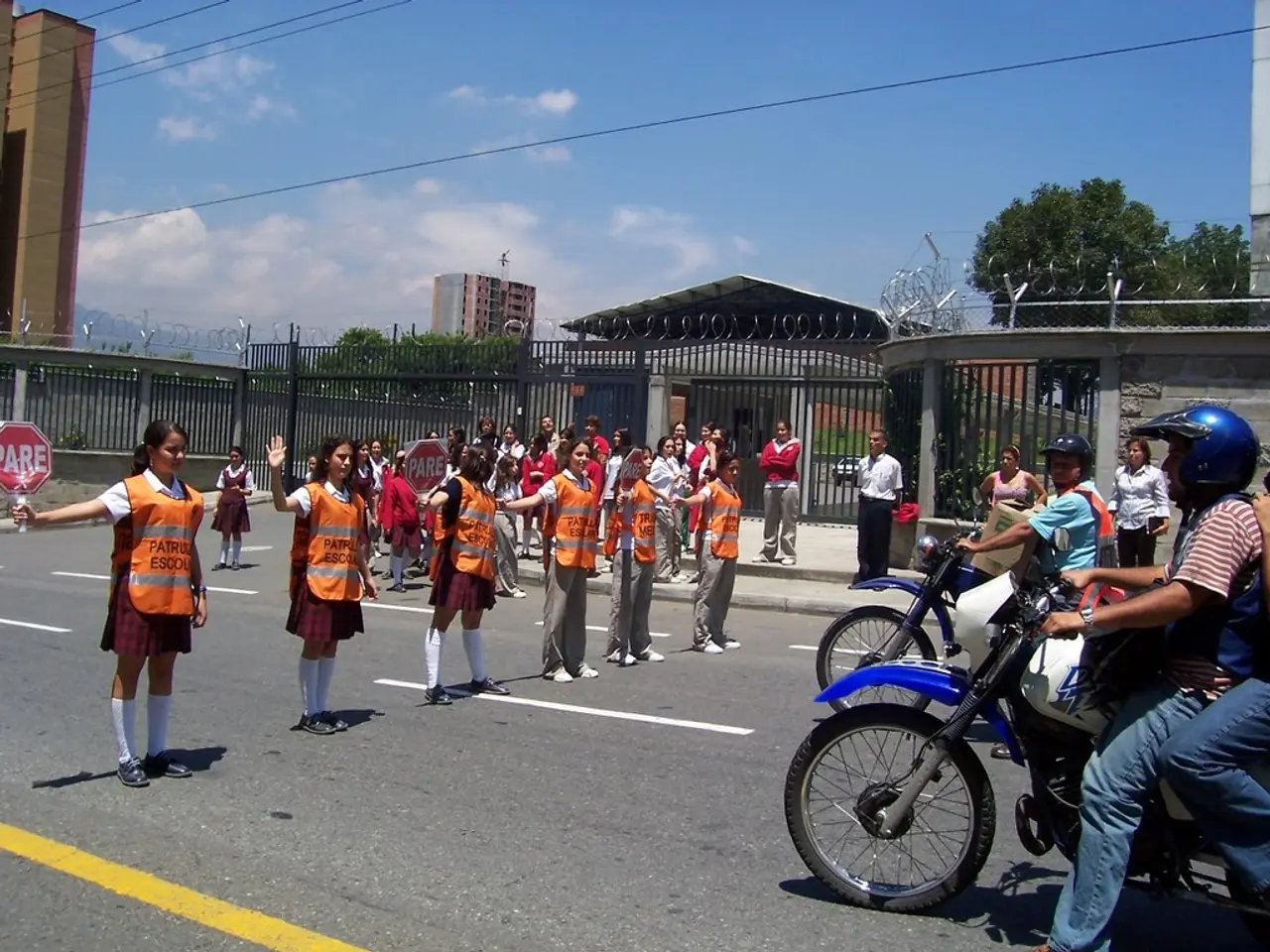School absenteeism intensifies due to increased immigration enforcement actions
In a troubling turn of events, research indicates that immigration raids can negatively impact student attendance and school performance. A recent study conducted at Stanford University illustrates this trend, focusing on California's Central Valley where attendance drops were observed after raids swept through the region this winter.
Thomas S. Dee, an education professor at Stanford, found that daily absences surged by 22% around the time raids occurred. This surge corresponds to an average student missing about 15 days of school each year, up from the previous 12 days.
Schools across the region have been feeling the repercussions, with educators finding themselves stretched thin as they address the rise in absenteeism. Teachers are adjusting their curricula to accommodate students who have fallen behind due to missed classes, while school counselors and social workers are dedicating more time to tracking down missing children and tending to their anxiety about deportation.
The Central Valley, home to a majority of Latino students, represents a microcosm of the wider implications of immigration raids on education. Many students in the area have a precarious immigration status, with their parents working in agriculture, helping produce about a quarter of the nation’s food.
The study looked at attendance data from five school districts serving over 100,000 children, a marked increase from previous research that focused on smaller areas. The findings echo past studies that revealed immigration raids under various administrations, including Trump, Biden, and Obama, led to decreases in student attendance at nearby schools.
The recent surge in missed learning comes amidst a preexisting crisis brought on by the COVID-19 pandemic. In Fresno Unified, the region's largest school district, Superintendent Misty Her regularly makes home visits to families whose children have stopped attending school.
While fears of deportation are not a new phenomenon for immigrants in the Central Valley, anxiety levels have reached an all-time high. This escalation can be attributed to Trump's aggressive stance on immigration and the proliferation of stories about family separations and children being placed in foster care, often shared on social media.
For many parents, the fear of being deported while their children are at school and being separated from them is unbearable. Rather than risk such an outcome, some have chosen to keep their children home.
The White House, however, has maintained that illegal immigration causes disruption in communities and argued that enforcing the law is essential.
These developments underscore the need for policymakers to consider the long-term effects of immigration enforcement on student achievement, mental health, and educational resources. One suggestion is for states to reconsider tying school funding to attendance, viewing immigration raids as events akin to natural disasters that require extra funding and support. Some families, faced with the prospect of separation, may choose to leave the country voluntarily, further affecting school enrollment and community stability.
- The surge in absenteeism among students in the Central Valley, primarily of Latino descent, raises concerns about their long-term health and education, as missed classes may lead to learning deficits and emotional distress.
- In light of the recent study, it becomes crucial to reevaluate the impact of immigration raids on education-and-self-development, leading to a call for online-education solutions to ensure continuity of learning for affected students.
- As attested by the findings from Stanford University, immigration raids not only affect student attendance and school performance but also create a ripple effect through the entire educational system, necessitating increased resources for counseling, social work, and curriculum adjustments.




